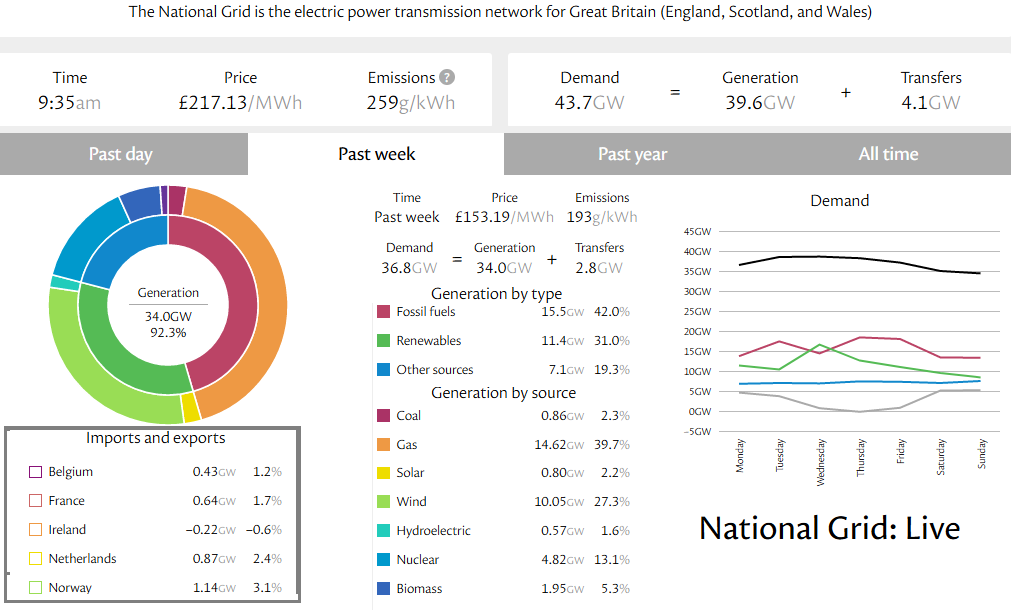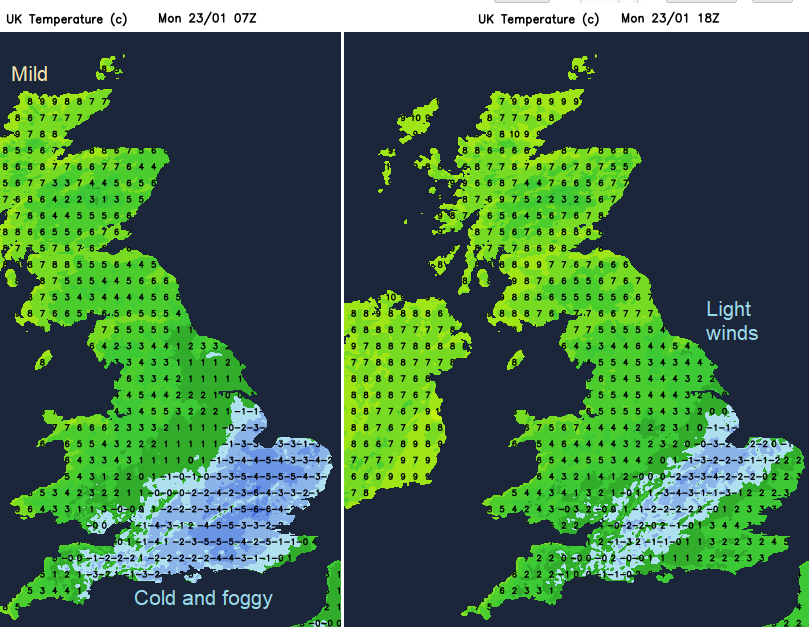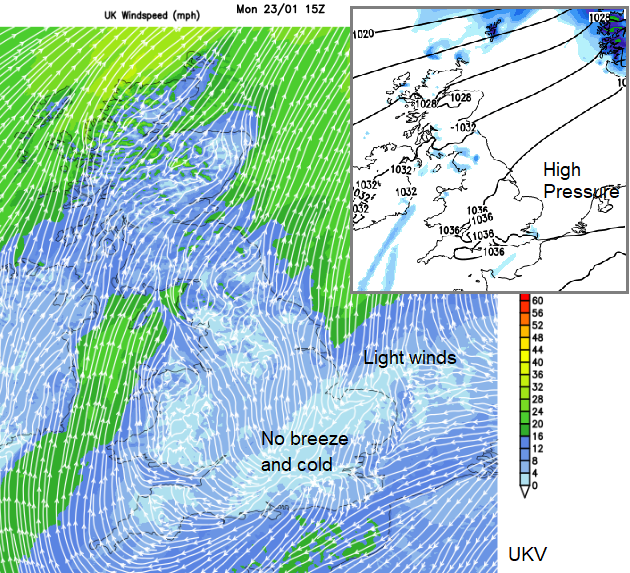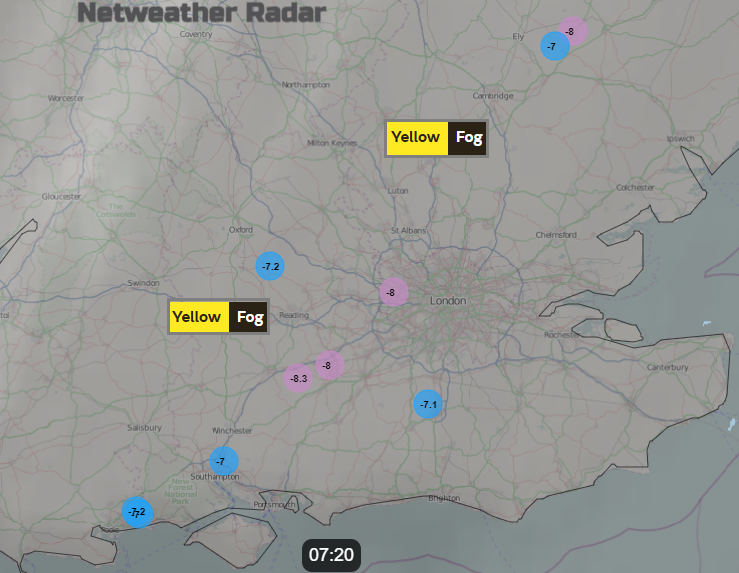
A peak in energy demand has been highlighted by the National Grid which will put strain on UK energy supplies in this cold spell. The first Demand Flexibility Service session will take place this evening
Monday evening sees the first ‘Demand Flexibility Service’ being activated. It has different names from different energy providers such as Peak Save, Saving Sessions, Turn Down & Save. These are all part of a country-wide effort to ease the strain on our energy grid at identified peak times during winter. This one is Monday 23rd January 2023 between 5pm and 6pm. It’s all about supply and demand and the resulting energy balance.
This campaign hopes to reduce pressure on the energy network, prevent the need for blackouts and lessen any temporary use of certain fossil fuel backups by shifting some demand away from certain peak time slots. January is usually when the electricity grid is under the most pressure. Energy demand equals our energy generation, plus transfers from abroad. It has been colder than average recently and now there are light winds. Several of these sessions are expected in the coming weeks and they will be available to people who have signed up for a scheme and responded to an invite through their energy company.

National Grid Live from grid.iamkate.com
The Demand Flexibility Service (DFS) allows the National Grid to access extra flexibility when national demand is at its highest. There are incentives to voluntarily shift your personal use of certain higher energy use goods, such as washing machines, or to change when you charge a car.

Energy companies and the National Grid are identifying specific time slots when the grid needs extra help. They will usually be during the busiest times of the day, to help the overall energy balance. Peak times are in the morning as people wake up and head out on weekdays and between 4pm and 7pm. For a good part of central, eastern and southern England temperatures will only just lift above freezing today. Where the fog or low cloud lingers people will need to put lights on for longer, perhaps they will be adjusting their heating. The demand is higher when it is cold and increases when it falls dark and people get home from school and work. Hence the timing of the 5-6pm window today but future sessions could be a few hours long.
Warming up and using coal-fired power stations as backups involves more fossil fuels and increased emissions. Solar generation is lower in winter, winds are lighter currently, gas supply and prices are an ongoing political issue. Burning gas is what powers many of the UK’s electricity-producing power stations.
National Grid ESO is the Electricity System Operator for Great Britain. It moves high-voltage electricity around the country to ensure that the right amount of electricity is in the right place at the right time, trying to keep supply and demand in balance. The energy companies deal with energy generation and selling and so have to plan, even react, to predicted imbalances. It is hoped that the actions of people and industry in these specific time frames can reduce the need for coal backups and smooth the forecast peak in demand.

The recent weather has been cold and continues to be so over the south-eastern half of Britain to start this week. High pressure has taken hold and under this the winds have fallen light. This means that renewable wind production decreases. Demand is high because it is January, it is dark for many hours of the day and cold. However, it has been much colder in the northerly flow and now the clear skies under this high pressure allow temperatures to fall further each night. The lingering fog adds to the chill with little warmth from the sun. Heathrow fell down to -8.4C overnight, its lowest temperature for a decade.

There are always fluctuations with wind energy. Earlier this month there was a record-breaking amount of UK wind energy being generated.
“National Grid’s electricity system operator (NGESO) confirmed that between 6pm and 6.30pm on Tuesday 10th January, it generated 21.6GW in power – providing 50.4 per cent of the UK’s energy mix.”
This was heartening news. This mix includes the renewables of wind, solar and hydro but also nuclear and minimally nowadays, coal. These other energy sources help reduce the demand and reliance on gas. At this time, wind production is lower and that is one part of tonight’s issue.
As we move away from fossil fuels to renewable, cleaner energy supplies there are many steps to help aid the journey. Consuming less through energy efficiencies and reducing wastage. This has been brutally highlighted by recent price hikes and heightened public involvement. Consuming at better times, away from peaks with monetary incentives, is a behavioural change that helps. Load shedding is a way of relieving stress when the demand for electricity is greater than what can be supplied. Some customers can switch to a secondary power source, or the energy suppliers might reduce or stop electricity distribution across a certain area for a short period of time. This is known as rolling blackouts. These can safeguard the electricity system but are unpopular.
Tonight’s session hopes to address the imbalance which is forecast between the available supply and demand for power.
There have been test runs, such as Octopus energy’s Saving Sessions where customers sign up to reduce their energy use in identified time slots and receive money off their bills. This can be home use where households shift their energy use out of peak times and some industrial or commercial users as well. There are certain criteria for these schemes and people receive an invite with the details of the time slot.
Those who remember Economy7 will be familiar with monetary benefits of using off-peak electricity, the washing machine being on overnight. This new service is asking people to deliberately change their behaviour on a specific day. Home workers putting the washing machine on at lunchtime, families waiting until a bit later in the evening to put the dishwasher on and there are already incentives to charge an electric car overnight.
For those who have signed up and been invited to take part in this evening’s session, there are some rules. You have to be on half-hourly metering, a smart meter is needed to see what you usually use and if there is a reduction in say a weekly pattern. A minimum of 30 minutes response is needed and you have to have opted into the scheme and responded to the individual session invite (by email or app). It’s about avoiding using energy-intensive goods. It’s not about sitting in the dark, getting cold. The smart meter data then works out how much you saved. Even if you aren’t signed up for one of the many schemes, you might decide to help out by adjusting something in your household this evening.
The winter months are meteorologically December, January and February for statistical purposes. You may remember in 2018, the Beast from the East hit at the very end of February. Late cold spells are a nightmare for gas suppliers especially if they haven’t shown up as a large enough risk on forecasts from the previous autumn. By the end of winter, there will naturally be reduced bought/stored gas anyway. Gas has replaced coal for most of the UK’s electricity production (coal power plants are set to close in Britain by 2025) and, of course, gas is used in many UK homes for heating. It is a fossil fuel, a finite source and burning gas to generate electricity creates greenhouse gases.
“As part of GB’s ambition to reach net zero by 2050, we need to step away from using gas power. “ESO
Flexibility and adaptation are needed, as renewable energy sources vary due to environmental conditions and the weather. Coal might be used as a backup this week; gas is a major part of the UK’s energy supply currently but its (and Europe’s) vulnerabilities have been keenly highlighted this winter. Technology will continue to improve in a gradual process of shifting to cleaner, greener and (hopefully) more secure energy by the middle of the centenary
Other countries already experience restrictions on their power supply, such as Australia and South Africa. Here in the UK, we have been well protected (mostly) and expect a robust energy supply. There are occasional area interruptions, which cause consternation on local Facebook pages. Storms such as Arwen can cause larger disruptions but energy suppliers should legally give compensation for outages. Any forced blackouts would be a shock to the British public.
“We have instructed coal-fired power units to be available to increase electricity supplies should it be needed [Monday] evening…This does not mean electricity supplies are at risk and people should not be worried. These are precautionary measures to maintain the buffer of spare capacity we need.” ESO
Our weather does vary here in the UK. We have cold, quiet weather, then mild, blustery times. Seemingly too much rain, then not enough, too hot or freezing cold. Our climate is warming and we expect to just flick a switch for light and power, for the internet to just be there. Recently how much energy we use, particularly for heating with gas and cooking, has come to the forefront of many more people’s minds. This first DFS reduction session at a peak time is just another of those steps and can be seen as a precautionary measure to prevent blackouts. Something new into the pot of saving energy, reducing usage at peak times and enabling people to actively take part. Rather than returning to fossil fuel generators, people could make a difference in these highlighted sessions and if it is a success, this helps the overall energy balance.
Looking ahead this winter - Sudden Stratospheric Warming and it's potential effects on the UK weather. The Month ahead Netweather forecast
Advice about running appliances at cheaper times